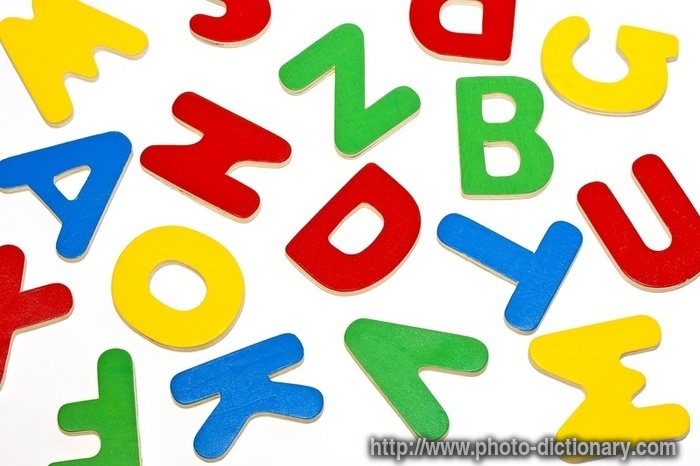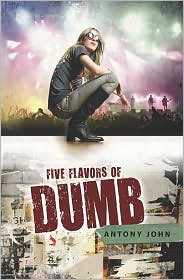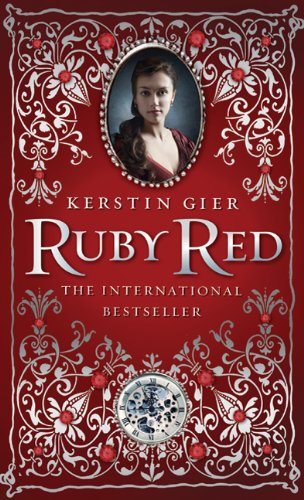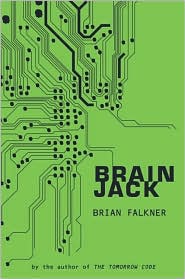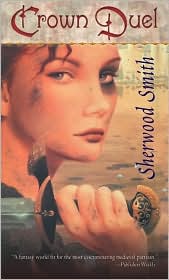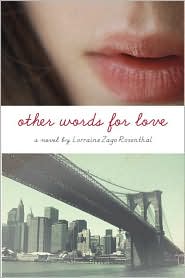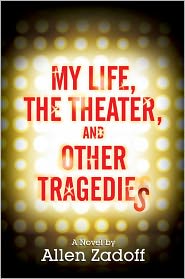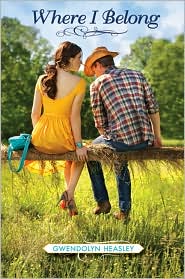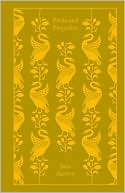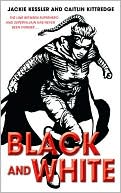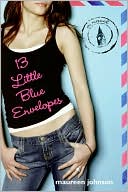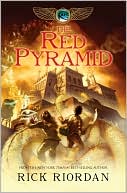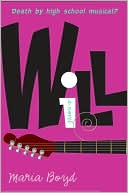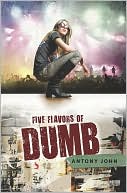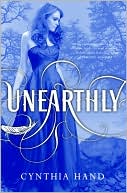Tags: YA, magical realism, New Zealand
Summary
Ellie’s life seems to be going as normally as possible, until an intimidating and odd older woman begins to seduce her asexual best friend Kevin. That, plus an increasing number of unexpected encounters with Mark, an enigmatic and handsome day student, opens Ellie up to the frightening world of Maori folklore. An ambitious group of Maori faeries are conspiring for their chance at immortality, at the cost of hundreds of thousands of human lives, and Ellie, Mark, and their friends must use what little they’ve learned about the creatures to stop them before all of New Zealand is destroyed forever.
Review
While certainly different from most speculative YA fiction out there, GUARDIAN OF THE DEAD did not give me the connectivity that I always require from an enjoyable reading experience. For me, it was an ambitious debut novel that was successful in the details of YA originality but missed most of the larger essentials of storytelling.
The things I appreciated about this book were mostly, sadly, superficial, at least when it comes to my criteria for liking a book. I appreciated that Ellie did not have the physical features of a typical YA protagonist. She is instead tall, big-boned, and skilled in tae kwon do. The book’s concept is also refreshing, featuring New Zealand mythology instead of more well-known European inspirations.
Beyond these things, however, there was much that frustrated me. The book seemed to rely on an unseeming and awkward chain of events in order to present information and move the plot along. Good stories don’t feel forced: they flow from scene to scene nearly unnoticed, and readers glean information effortlessly. GUARDIAN OF THE DEAD, however, felt to me like a bunch of scenes strung together to give us the painfully slow reveal of the story’s fantastical element. Most of the things in this book just felt very disconnected from one another, like puzzle pieces that look great individually, but do not fit together.
Still, this book has received a lot of praise and even some highly coveted YA lit awards. Perhaps it is my demand for great storytelling over unique concepts that made this book miss its mark with me. Perhaps you will love it. There’s only one way to find out.
Similar Authors
Anastasia Hopcus (Shadow Hills)
Kimberly Derting (The Body Finder)
Writing: 3/5
Characters: 3/5
Plot: 3/5
Overall Rating: 3 out of 5
Cover discussion: 3 out of 5 - Very creepy, and thus very appropriate for this book.
Little, Brown / April 1, 2010 / Hardcover / 345pp. / $17.99
Personal copy; read for Cybils.
Sunday, February 27, 2011
Friday, February 25, 2011
The Jeopardy! IBM Challenge and What It Tells Us About Language
So who caught the Jeopardy! IBM "Man vs. Machine" Challenge that aired for Feb. 14th, 15th, and 16th? It should be, like, required viewing for all nerds, trivia geeks, etc. I mean, I like Jeopardy, and trivia, on a normal basis, but the IBM Challenge took Jeopardy to the next level--which, apparently, includes science, as well as a little bit of what most people might consider sci-fi as well.
A little background for those who don't know anything of what this is about: for the past few years, IBM has worked on creating a computer that can answer questions by reproducing the way human beings answer questions. "Watson," the computer's name, is loaded up with a ton of data, and has algorithms that allow him to pick out the key words in the Jeopardy clue, sift through his data for possible answers, and predict how likely the terms his algorithms picked out might be the answer. The scientists' hope is that one day this sort of artificial intelligence would be beneficial to, say, doctors working in an extremely isolated area, who may not have access to medical textbooks and other informational resources, may be able to plug symptoms into the database and have the computer spit back the diagnosis and its treatment. You can watch the entire 3-day challenge through Youtube if you'd like.
Varying opinions on artificial intelligence aside, I found the whole thing so very fascinating. It was not that Watson knew more than Ken Jennings or Brad Rutter; I'm fairly certain that they were all very capable of answering the majority of the questions. I'd be curious to see how they programmed Watson to, shall we say, "buzz in" to answer. Because when it comes down to it in Jeopardy, it doesn't matter how quickly you figure out the answer to the clue so much as how fast your reflexes are. So where did the IBM scientists draw the line at Watson's reflexivity? There would be no doubt that a computer's so-called "reflexes" would be much faster than a human's hand-eye coordination. I suspect that Watson answered so many questions correctly not because he knew more than Ken or Brad, but because, with his computer reflexes, he was able to buzz in more quickly than either man. This frustrates me quite a bit because it totally messes with anyone doing scientific observations, augghhhhh!
But that is an issue for IBM to consider for the future, and not what I want to focus on here.
How, you might ask, is what Watson does any different than one of us plugging a question into Google and getting back possible answers? And that's a very good, legitimate question. The difference is in how the data is stored. The Internet as we know it right now is not raw data: instead, it's data that has already been organized into "un-break-down-able" webpages by other human beings. When you type a question such as "How many U.S. presidents had/have a daughter as their oldest child?" into Google, you'll only get an answer back if someone else has already sorted through the data and written up the answer. Otherwise, you'll notice, you'll get hits for related sites, such as "children of U.S. presidents," "geneologies of U.S. presidents," and so on. It's possible, of course, to figure out how many U.S. presidents have eldest daughters via those related sites, but that takes the usual amount of time it takes a human being to solve such data organization questions.
Lots of really smart people have, in TED talks, proposed the project of something like "Internet 2.0," in which all of the data in the world is just put out there for anyone to access and play with as they want. In such a case, typing the question "How many U.S. presidents had/have a daughter as the oldest child?" will prompt the system to sift out the keywords in the question--U.S. presidents, daughter, oldest child--and then limit the data shown to just that which fits those keywords. This is essentially how Watson works. Internet 2.0 would mean that all of this data in its pure unadulterated form would be available, and if we wanted to find an answer to something via an Internet search, we wouldn't have to rely largely on earlier people already answering those questions.
The thing is, most people don't realize until it is explained to them that the way we process language and information is NOT like Internet 2.0, but much more similar to a Google search. We humans loooove patterns: we organize information in them, make patterns out of nothing if need be, remember better if given mnemonics. We remember simple childhood nursery rhymes far better than passages of prose, because rhyme and meter organize the data of language into patterns that we have a much easier time memorizing.
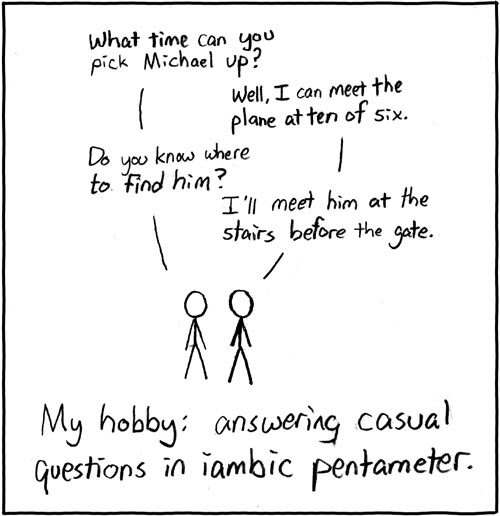 |
| xkcd.com |
Artificial intelligence as it currently stands does not do this. For Watson and others, they are aware of the most common way of reciting the alphabet, but if asked to recite the alphabet in random order, they could probably do it with no much more effort than they could do it in the "traditional" way. This has both its pros and cons. On the plus side, Watson can much more easily sift through raw data and come up with brand new ways to organize it. On the downside, natural language processing is really a blindingly fast mental process, as we humans take shortcuts to get to answers much more effortlessly than if we had to go through what Watson has to go through every time we wanted to get answers. And, if you watch the Jeopardy episodes, occasionally Watson does some really stupid things that no human would do, and I'm sure the IBM scientists are now scrambling over themselves trying to figure out why oh why Watson did that. (Seriously, watch it. It only takes an hour. It's incredible.)
When a human answers questions on Jeopardy, we don't do it as Watson does, sifting through all the data we possess and ranking possible answers in order of their likelihood to be correct. I don't even know how a human does it, because I haven't taken enough linguistics or cognitive science classes. All I know is that, thus far, a computer has not been able to replicate natural language processing.
 |
| onlineeducation.net |
There are some things that computers are not yet able to replicate, and one of them is the interactive experience between the reader, the text, and the world in which both of them exist.
I challenge you to think about that the next time you open a book.
Thursday, February 24, 2011
Review: Five Flavors of Dumb by Antony John
Tags: YA, contemporary, music, deafness
Summary
Piper, a moderately deaf high school senior, unexpectedly finds herself the manager of a high school band by the culturally enlightened name of Dumb. Her job is to get Dumb some paying gigs, but Piper soon finds out that being a manager consists of much more than simply financial savvy. Piper must deal with musical shortcomings, in-band tensions, a skeptical and uncomprehending family, and, perhaps, most of all, her doubt in her own ability to break out of her quiet good-girl mold and demand that the world listen to her.
Review
Antony John’s novel would more appropriately be called Five Flavors of AWESOME. This rocking good book will make you want to jump up and cheer, for wonderful characters, great narration, and an absorbing and uplifting tale.
I’m really quite bowled over at how well John captures the voice of a teenage girl. Piper may be deaf, but she struggles with many of the same issues as other teenagers: her dreams of independence and acceptance battle her sense of familial obligation, she wishes she could blend into the crowd yet simultaneously wants to be respected. Incredibly, Piper never falls into the YA cliché of the smart and quiet good girl who breaks out of her shell. She is down-to-earth and resilient despite years of having to struggle against the current, particularly her family’s subpar ways of dealing with her deafness. She is truly a character that I would be proud to call a friend, and gives contemporary YA female protagonists everywhere a good name.
A story cannot propel itself on the strength of a well-written protagonist alone, and happily supporting characters in FIVE FLAVORS OF DUMB are just as fascinating, just as complex. The band members different personalities and problems with one another are believable and add a good amount of conflict to the story without being too messy or overwhelming. The changes that Piper and her family undergo in their relationships with one another truly take the cake, however. It is subtle yet prominent, optimistic without wandering into unrealistic happily-ever-afters.
FIVE FLAVORS OF DUMB is not simply a book about the music business, or being deaf. It is, rather, the story of an incredible girl who learns how to be proud of who she is, and beautiful in her confidence. Highly recommended for those who enjoy a strong read that reminds us about why we love contemporary YA: for that gem of a character into whose journey we get irrevocably swept.
Similar Authors
Carolyn Mackler
John Green
Writing: 5/5
Characters: 5/5
Plot: 4/5
Overall Rating: 4.5 out of 5
Cover discussion: 3.5 out of 5 - I like the colors, but am not sure how I feel about the model, and how she's posed.
Dial Books / Nov. 11, 2010 / Hardcover / 352pp. / $16.99
Borrowed from library.
Summary
Piper, a moderately deaf high school senior, unexpectedly finds herself the manager of a high school band by the culturally enlightened name of Dumb. Her job is to get Dumb some paying gigs, but Piper soon finds out that being a manager consists of much more than simply financial savvy. Piper must deal with musical shortcomings, in-band tensions, a skeptical and uncomprehending family, and, perhaps, most of all, her doubt in her own ability to break out of her quiet good-girl mold and demand that the world listen to her.
Review
Antony John’s novel would more appropriately be called Five Flavors of AWESOME. This rocking good book will make you want to jump up and cheer, for wonderful characters, great narration, and an absorbing and uplifting tale.
I’m really quite bowled over at how well John captures the voice of a teenage girl. Piper may be deaf, but she struggles with many of the same issues as other teenagers: her dreams of independence and acceptance battle her sense of familial obligation, she wishes she could blend into the crowd yet simultaneously wants to be respected. Incredibly, Piper never falls into the YA cliché of the smart and quiet good girl who breaks out of her shell. She is down-to-earth and resilient despite years of having to struggle against the current, particularly her family’s subpar ways of dealing with her deafness. She is truly a character that I would be proud to call a friend, and gives contemporary YA female protagonists everywhere a good name.
A story cannot propel itself on the strength of a well-written protagonist alone, and happily supporting characters in FIVE FLAVORS OF DUMB are just as fascinating, just as complex. The band members different personalities and problems with one another are believable and add a good amount of conflict to the story without being too messy or overwhelming. The changes that Piper and her family undergo in their relationships with one another truly take the cake, however. It is subtle yet prominent, optimistic without wandering into unrealistic happily-ever-afters.
FIVE FLAVORS OF DUMB is not simply a book about the music business, or being deaf. It is, rather, the story of an incredible girl who learns how to be proud of who she is, and beautiful in her confidence. Highly recommended for those who enjoy a strong read that reminds us about why we love contemporary YA: for that gem of a character into whose journey we get irrevocably swept.
Similar Authors
Carolyn Mackler
John Green
Writing: 5/5
Characters: 5/5
Plot: 4/5
Overall Rating: 4.5 out of 5
Cover discussion: 3.5 out of 5 - I like the colors, but am not sure how I feel about the model, and how she's posed.
Dial Books / Nov. 11, 2010 / Hardcover / 352pp. / $16.99
Borrowed from library.
Wednesday, February 23, 2011
Waiting on Wednesday (99)
 The Girl in the Steel Corset by Kady Cross
The Girl in the Steel Corset by Kady CrossShe thought there was something wrong with her. She was right.
Finley Jayne has known for quite some time that she isn’t ‘normal,’ but when she beats up the son of her employer and is forced to flee, she stumbles into a world where there are bigger freaks than her. They take her in, treat her like family and demand her trust. How can Finley trust them when she can’t trust herself? And why is she drawn to the powerful Griffin as well as the dangerous Jack? She has to get herself under control before she gets into trouble she can’t get out of.
Griffin King is one of the most powerful men in Britain but he couldn’t save his best friend from almost dying. He is determined to save Finley and help her become the person he knows she can be, but there’s evil afoot in London. Machines have attacked humans under the orders of a nefarious criminal called The Machinist. He has sworn to protect his country against such a threat, but he’s never faced any foe like this. However, when he discovers The Machinist’s connection to his past, Griffin vows to end the villain once and for all — but he’ll need the help of all his friends, including the beautiful Finley Jayne – the girl in the steel corset.
So, after reading and loving The Iron Duke by Meljean Brook recently (plugplugplugplug--but, oh yes, warning! 'tis not a YA novel), I think I am going to love all things steampunk. Not only does The Girl in the Steel Corset have a drop-dead gorgeous cover, but that is a synopsis that is worthy of a good historical romance novel. I'll be interested to see how this one is marketed as YA.
The Girl in the Steel Corset will be released in hardcover from Harlequin TEEN on May 24, 2011.
Tuesday, February 22, 2011
Cover Lust (24)
So many covers have come out recently that it's getting harder and harder for me to pick out favorites. Here, though, are some that I find particularly stunning.
Ruby Red by Kerstin Geir
(Henry Holt & Co. / May 10, 2011)
This German import has gotten a fabulously classy cover makeover. I can almost feel the texture, see the sheen of the metallicized components, taste the luxuriousness of that shade of red.
Dreams of Significant Girls by Cristina Garcia
(Simon & Schuster / July 12, 2011)
Simple yet evocative, and hopefully hints at the three different cultures that are explored in this novel.
Tris and Izzie by Mette Ivie Harrison
(EgmontUSA / Oct. 11, 2011)
This is so breathtaking. I love how the camera focus is on the couple in the middleground. I also love the color scheme, which reminds me of nostalgia.
So Silver Bright (Theatre Illuminata, Book 3) by Lisa Mantchev
(Feiwel & Friends / Sept. 13, 2011)
Jason Chan I believe is the artist behind these magnificent creations. I can never get over how whimsically beautiful all of Lisa's covers are. Can I pleeeeease have this in poster-size, framed on my wall?
Jessica Rules the Dark Side by Beth Fantaskey
(Harcourt / Jan. 9, 2012)
*gasp* The PURPLE! What a lovely companion to the first book's cover. I think I might like this one even more. The model's dress, her expression.... and did I mention that lovely, rich, royal purple?
Monday, February 21, 2011
Review: Brain Jack by Brian Falkner
Tags: YA, cyberthriller
Summary
In the future United States, a savvy teen hacker named Sam breaks into the nation’s largest telecommunications office system to order himself a top-of-the-line neuro-headset and inadvertently causes a several-day meltdown of the US’s network. Because of this, Sam is courted by a top government computer security organization to put his skills to good use. However, Sam and his coworkers do not anticipate a new threat that awaits them. As the world turns from traditional keyboard-and-mouse technology to the faster hands-free neuro-headset, the power of society’s collective conscience may prove to be the most dangerous weapon ever accidentally created.
Review
BRAIN JACK is an edge-of-your-seat cyberthriller stuffed full of technical jargon. It will definitely not appeal to everyone, particularly those who like their characters more developed and the storytelling tighter, but if you’re interested in an absorbing, probably-too-smart-for-its-own-good thriller, then this is an interesting choice.
I of course like well-developed characters, but I can make exceptions when the author can convince me that he knows what he’s talking about with the premise—even if he doesn’t. And Brian Falkner convinced me. I don’t consider myself particularly technologically savvy, especially for the mechanics of computer hardware and the Internet, but I found myself enjoying the characters’ unending technical term-dropping. It sucked me right into a cyber-world that I knew very little about, and so I was sufficiently impressed by the terminology used to get into the story.
Where BRAIN JACK started unraveling for me was upon the introduction of the book’s main nemesis. I won’t spoil it for interested readers, but the idea is conceivable if we stretch our imaginations a bit. However, the book then resorts to wince-inducing action-adventure elements to force the plot along. These include: a getaway vehicle, a remote hideaway, and the obligatory car-and-gun chase, among others. It turns out that I was more satisfied with the world-building than with the actual plot of this book.
In terms of quality, there are better books out there, but if you’re looking into trying out a cyberthriller and are okay with the other flaws that I’ve mentioned, then this will make for one hell of a ride.
Similar Authors
Rae Mariz (The Unidentified)
Writing: 3/5
Characters: 3/5
Plot: 4/5
Overall Rating: 3.5 out of 5
Cover discussion: 3.5 out of 5 - Very cool, very cool. And the finished copy is this shimmery green color.
Random House / Sept. 28, 2010 / Hardcover / 368pp. / $17.99
Review copy sent by publisher; read for Cybils. Thanks, Random House!
Summary
In the future United States, a savvy teen hacker named Sam breaks into the nation’s largest telecommunications office system to order himself a top-of-the-line neuro-headset and inadvertently causes a several-day meltdown of the US’s network. Because of this, Sam is courted by a top government computer security organization to put his skills to good use. However, Sam and his coworkers do not anticipate a new threat that awaits them. As the world turns from traditional keyboard-and-mouse technology to the faster hands-free neuro-headset, the power of society’s collective conscience may prove to be the most dangerous weapon ever accidentally created.
Review
BRAIN JACK is an edge-of-your-seat cyberthriller stuffed full of technical jargon. It will definitely not appeal to everyone, particularly those who like their characters more developed and the storytelling tighter, but if you’re interested in an absorbing, probably-too-smart-for-its-own-good thriller, then this is an interesting choice.
I of course like well-developed characters, but I can make exceptions when the author can convince me that he knows what he’s talking about with the premise—even if he doesn’t. And Brian Falkner convinced me. I don’t consider myself particularly technologically savvy, especially for the mechanics of computer hardware and the Internet, but I found myself enjoying the characters’ unending technical term-dropping. It sucked me right into a cyber-world that I knew very little about, and so I was sufficiently impressed by the terminology used to get into the story.
Where BRAIN JACK started unraveling for me was upon the introduction of the book’s main nemesis. I won’t spoil it for interested readers, but the idea is conceivable if we stretch our imaginations a bit. However, the book then resorts to wince-inducing action-adventure elements to force the plot along. These include: a getaway vehicle, a remote hideaway, and the obligatory car-and-gun chase, among others. It turns out that I was more satisfied with the world-building than with the actual plot of this book.
In terms of quality, there are better books out there, but if you’re looking into trying out a cyberthriller and are okay with the other flaws that I’ve mentioned, then this will make for one hell of a ride.
Similar Authors
Rae Mariz (The Unidentified)
Writing: 3/5
Characters: 3/5
Plot: 4/5
Overall Rating: 3.5 out of 5
Cover discussion: 3.5 out of 5 - Very cool, very cool. And the finished copy is this shimmery green color.
Random House / Sept. 28, 2010 / Hardcover / 368pp. / $17.99
Review copy sent by publisher; read for Cybils. Thanks, Random House!
Thursday, February 17, 2011
Review: Crown Duel by Sherwood Smith
Tags: middle grade, YA, fantasy, war, politics, romance
Summary
Meliara and her brother Branaric’s lives change forever the day they promise their count father on his deathbed to overthrow the king’s corrupt regime. Mel and Bran lead a ragtag bunch of loyal servants and friends against the king’s army, which throws Mel again and again across the path of the Marquis of Shevraeth, a stoic man hiding quite a few number of his secrets. When, however, the dust of war has settled, Mel discovers that she just might prefer running and hiding across the countryside to save her life better than putting on the façade of gracious noblewoman in the new king-to-be’s court.
Review
Oh how I adore feisty heroines embroiled in duplicitous, action-packed fantasy political intrigues and romance! I wish I had known about this book earlier, for I have a feeling it will be one that I return to again and again for that magical dose of adventure, feminism, and romance.
Mel is my favorite kind of fantasy heroine: tough, resourceful, opinionated, and scared of being seen as vulnerable despite her deeply warm heart. I don’t even care that this type of female protagonist is a fantasy trope, because I just love ‘em. I loved reading about Mel’s struggles to avoid capture at the hands of Shevraeth and the king’s other men. And then I loved reading about Mel’s struggles to make herself a gentlewoman, worthy of the respect of the court. Mel is a protagonist worthy of Tamora Pierce’s creations.
I love that this book’s pacing never drags, which is great because I just get so darn bored of the MC’s moody contemplations of anything and everything that has or hasn’t happened to her. I admit wholeheartedly that I adored the book’s romantic subplot and, yes, will probably reread this book many times for mostly that element. It reminds me of a sort of Elizabeth Bennet-Mr. Darcy relationship arc, and I will leave it at that appetite-whetting point.
CROWN DUEL is a must-read if you love your Tamora Pierce and Gail Carson Levine. Maybe it doesn’t break new ground in lighthearted fantasy literature, but it fuels the fire that keeps my heart warm, fuzzy, and swooningly romantic. Sighhh. Now, back to rereading favorite bits…
Similar Authors
Tamora Pierce
Gail Carson Levine
Megan Whalen Turner
Writing: 4/5
Characters: 5/5
Plot: 5/5
Overall Rating: 4.5 out of 5
Cover discussion: 2 out of 5 - Ack. Someone might've taken creative license a bit too far... That's definitely not how I pictured Meliara at all, and is just overall very awkward, though it definitely shouts "young fantasy!" to me.
Penguin Firebird Fantasy / June 2002 (reprint) / Paperback / 480pp. / $8.99
Personal copy. Yay!
Summary
Meliara and her brother Branaric’s lives change forever the day they promise their count father on his deathbed to overthrow the king’s corrupt regime. Mel and Bran lead a ragtag bunch of loyal servants and friends against the king’s army, which throws Mel again and again across the path of the Marquis of Shevraeth, a stoic man hiding quite a few number of his secrets. When, however, the dust of war has settled, Mel discovers that she just might prefer running and hiding across the countryside to save her life better than putting on the façade of gracious noblewoman in the new king-to-be’s court.
Review
Oh how I adore feisty heroines embroiled in duplicitous, action-packed fantasy political intrigues and romance! I wish I had known about this book earlier, for I have a feeling it will be one that I return to again and again for that magical dose of adventure, feminism, and romance.
Mel is my favorite kind of fantasy heroine: tough, resourceful, opinionated, and scared of being seen as vulnerable despite her deeply warm heart. I don’t even care that this type of female protagonist is a fantasy trope, because I just love ‘em. I loved reading about Mel’s struggles to avoid capture at the hands of Shevraeth and the king’s other men. And then I loved reading about Mel’s struggles to make herself a gentlewoman, worthy of the respect of the court. Mel is a protagonist worthy of Tamora Pierce’s creations.
I love that this book’s pacing never drags, which is great because I just get so darn bored of the MC’s moody contemplations of anything and everything that has or hasn’t happened to her. I admit wholeheartedly that I adored the book’s romantic subplot and, yes, will probably reread this book many times for mostly that element. It reminds me of a sort of Elizabeth Bennet-Mr. Darcy relationship arc, and I will leave it at that appetite-whetting point.
CROWN DUEL is a must-read if you love your Tamora Pierce and Gail Carson Levine. Maybe it doesn’t break new ground in lighthearted fantasy literature, but it fuels the fire that keeps my heart warm, fuzzy, and swooningly romantic. Sighhh. Now, back to rereading favorite bits…
Similar Authors
Tamora Pierce
Gail Carson Levine
Megan Whalen Turner
Writing: 4/5
Characters: 5/5
Plot: 5/5
Overall Rating: 4.5 out of 5
Cover discussion: 2 out of 5 - Ack. Someone might've taken creative license a bit too far... That's definitely not how I pictured Meliara at all, and is just overall very awkward, though it definitely shouts "young fantasy!" to me.
Penguin Firebird Fantasy / June 2002 (reprint) / Paperback / 480pp. / $8.99
Personal copy. Yay!
Labels:
4.5,
fantasy,
middle grade,
review,
sherwood smith,
YA
Sunday, February 13, 2011
In My Mailbox (56)
In My Mailbox is a weekly meme inspired by Alea and hosted by Kristi. Check out Kristi's post to see what others got in terms of books this week!
For review:
Jenna & Jonah's Fauxmance by Emily Franklin and Brendan Halpin
Dark Mirror by M. J. Putney
Thanks to Kate at Bloomsbury, LibraryThing's Early Reviewer Program, and St. Martin's Griffin!
Gifted:
Shade (UK paperback) by Jeri Smith-Ready
Ship Breaker by Paolo Bacigalupi
Thank you soooo much Jenny and Simon & Schuster!
Bought:
Kindle!
Swapped:
Afterlight by Elle Jasper
Last Sacrifice by Richelle Mead
Shine, Coconut Moon by Neesha Meminger
Jazz in Love by Neesha Meminger
Siren by Trisha Reyburn
Matched by Ally Condie
Borrowed:
Battle Hymn of the Tiger Mother by Amy Chua
The Education of Hailey Kendrick by Eileen Cook
The Accidental Billionaires by Ben Mezrich
The Outsiders by S.E. Hinton
The Pigman by Paul Zindel
I borrowed Battle Hymn of the Tiger Mother because the book, which is about Chinese parenting, was in all the news last month. I want to read The Accidental Billionaires after watching The Social Network, from which the movie was adapted. I'm going to attempt to read The Outsiders and The Pigman as part of my thesis research!
Yes, I finally caved in and bought an eReader! So far I very much like my Kindle. I've been reading on her every night before I fall asleep. I like it a lot. It's not perfect by any means, but for an eReader of this generation it's quite tops. I look forward to spending much more time with her (and to giving her a proper name!).
For review:
Jenna & Jonah's Fauxmance by Emily Franklin and Brendan Halpin
Dark Mirror by M. J. Putney
Thanks to Kate at Bloomsbury, LibraryThing's Early Reviewer Program, and St. Martin's Griffin!
Gifted:
Shade (UK paperback) by Jeri Smith-Ready
Ship Breaker by Paolo Bacigalupi
Thank you soooo much Jenny and Simon & Schuster!
Bought:
Kindle!
Swapped:
Afterlight by Elle Jasper
Last Sacrifice by Richelle Mead
Shine, Coconut Moon by Neesha Meminger
Jazz in Love by Neesha Meminger
Siren by Trisha Reyburn
Matched by Ally Condie
Borrowed:
Battle Hymn of the Tiger Mother by Amy Chua
The Education of Hailey Kendrick by Eileen Cook
The Accidental Billionaires by Ben Mezrich
The Outsiders by S.E. Hinton
The Pigman by Paul Zindel
I borrowed Battle Hymn of the Tiger Mother because the book, which is about Chinese parenting, was in all the news last month. I want to read The Accidental Billionaires after watching The Social Network, from which the movie was adapted. I'm going to attempt to read The Outsiders and The Pigman as part of my thesis research!
Yes, I finally caved in and bought an eReader! So far I very much like my Kindle. I've been reading on her every night before I fall asleep. I like it a lot. It's not perfect by any means, but for an eReader of this generation it's quite tops. I look forward to spending much more time with her (and to giving her a proper name!).
Saturday, February 12, 2011
Review: Other Words for Love by Lorraine Zago Rosenthal
Tags: YA, realistic fiction, family, friendship, love, limerence, NYC
Summary
Ari’s life seems to consist of being a dutiful, perfect younger sister to Evelyn, who got pregnant and dropped out of high school to start her family, and listening to her stunning best friend Summer’s various adventures. Ari longs for the kind of intimate love that Evelyn and her husband Patrick share, a love that does not seem to consist of living up to expectations, as her relationship with her mother is.
When Ari gets the chance to enroll at the same private school that Summer attends, she befriends Leigh, and through Leigh gets to know Blake, whose attention to her seems too good to be true. As Ari and Blake’s relationship progresses further, however, it feels to her like everyone is trying to tear them apart, to talk down the seriousness of their relationship. Is what Ari has with Blake the real thing, or is it just another manifestation of her desire to be loved?
Review
OTHER WORDS FOR LOVE, Lorraine Zago Rosenthal’s debut novel, is not what I expected. The jacket synopsis leads one to believe that this is a classic love story, when it is more a story about family and multiples types of love. Even with this grateful expansion of the book’s contents, however, it failed to truly impress me.
Ari’s story deserves to be read because Ari is so relatable. She is very much the everygirl: smart, dutiful, feels overlooked, feels plain next to her vibrant friends, wants to be loved just as she is. Rosenthal constructs Ari’s story in such a way as to make us feel for Ari and all her struggles, despite the fact that her desires may in fact be inherently selfish. For Ari is not perfect. She believes that romantic love can fix all her problems and chooses to obsess over her lack of it instead of focusing her attentions elsewhere more productively. This focus on attaining romantic love is not something we really like to admit to, but we’ve all done it some time or another. Perhaps we may like Ari because we recognize her flaws and yet recognize ourselves in her.
However, this book didn’t quite succeed in aweing me with its attempt at covering so many human concerns. OTHER WORDS FOR LOVE feels like it’s written from an adult hindsight perspective, which for me at least results in an emotional disconnect with the characters. I don’t really read a book to have characters tell me what is wrong with their beliefs and actions; I like to figure that out myself.
Furthermore, I felt like the book tried to focus on so many huge topics that nothing felt truly complete. My favorite subplot involved Ari’s relationship with her sister’s family. Even that, however, felt inconsistent, with a hopeful ending that felt rushed. Ari’s friendships with Summer and Leigh fell flat, like textbook portrayals of “the glamorous friend and her plain sidekick” and “the self-involved main character’s poor treatment of her new friend,” without any true weight behind either of them. And I felt so little attraction between Blake and Ari that (that emotional disconnect I mentioned earlier) that I couldn’t fully let myself believe that it was as transformative a relationship as Ari believed it was for herself.
Ultimately, it was simply a mismatch of literary priorities between this book and me. I can see appreciators of detailed, analytical biopics on high school girls’ lives such as what you find in Curtis Sittenfeld’s Prep enjoying this book. Unfortunately, it just wasn’t the book for me.
Similar Authors
Curtis Sittenfeld (Prep)
Deb Caletti
Yvonne Prinz
Writing: 3/5
Characters: 3/5
Plot: 3/5
Overall Rating: 3 out of 5
Cover discussion: 3 out of 5 - It never really pulled me in, and it was only after I had read others' good reviews of the book that I became interested in it. It just lacks a certain sort of... brilliance that attracts me to covers, I suppose.
Delacorte Books / Jan. 11, 2011 / Hardcover / 368pp. / $17.99
Review copy received from publisher. Thank you, Random House!
Summary
Ari’s life seems to consist of being a dutiful, perfect younger sister to Evelyn, who got pregnant and dropped out of high school to start her family, and listening to her stunning best friend Summer’s various adventures. Ari longs for the kind of intimate love that Evelyn and her husband Patrick share, a love that does not seem to consist of living up to expectations, as her relationship with her mother is.
When Ari gets the chance to enroll at the same private school that Summer attends, she befriends Leigh, and through Leigh gets to know Blake, whose attention to her seems too good to be true. As Ari and Blake’s relationship progresses further, however, it feels to her like everyone is trying to tear them apart, to talk down the seriousness of their relationship. Is what Ari has with Blake the real thing, or is it just another manifestation of her desire to be loved?
Review
OTHER WORDS FOR LOVE, Lorraine Zago Rosenthal’s debut novel, is not what I expected. The jacket synopsis leads one to believe that this is a classic love story, when it is more a story about family and multiples types of love. Even with this grateful expansion of the book’s contents, however, it failed to truly impress me.
Ari’s story deserves to be read because Ari is so relatable. She is very much the everygirl: smart, dutiful, feels overlooked, feels plain next to her vibrant friends, wants to be loved just as she is. Rosenthal constructs Ari’s story in such a way as to make us feel for Ari and all her struggles, despite the fact that her desires may in fact be inherently selfish. For Ari is not perfect. She believes that romantic love can fix all her problems and chooses to obsess over her lack of it instead of focusing her attentions elsewhere more productively. This focus on attaining romantic love is not something we really like to admit to, but we’ve all done it some time or another. Perhaps we may like Ari because we recognize her flaws and yet recognize ourselves in her.
However, this book didn’t quite succeed in aweing me with its attempt at covering so many human concerns. OTHER WORDS FOR LOVE feels like it’s written from an adult hindsight perspective, which for me at least results in an emotional disconnect with the characters. I don’t really read a book to have characters tell me what is wrong with their beliefs and actions; I like to figure that out myself.
Furthermore, I felt like the book tried to focus on so many huge topics that nothing felt truly complete. My favorite subplot involved Ari’s relationship with her sister’s family. Even that, however, felt inconsistent, with a hopeful ending that felt rushed. Ari’s friendships with Summer and Leigh fell flat, like textbook portrayals of “the glamorous friend and her plain sidekick” and “the self-involved main character’s poor treatment of her new friend,” without any true weight behind either of them. And I felt so little attraction between Blake and Ari that (that emotional disconnect I mentioned earlier) that I couldn’t fully let myself believe that it was as transformative a relationship as Ari believed it was for herself.
Ultimately, it was simply a mismatch of literary priorities between this book and me. I can see appreciators of detailed, analytical biopics on high school girls’ lives such as what you find in Curtis Sittenfeld’s Prep enjoying this book. Unfortunately, it just wasn’t the book for me.
Similar Authors
Curtis Sittenfeld (Prep)
Deb Caletti
Yvonne Prinz
Writing: 3/5
Characters: 3/5
Plot: 3/5
Overall Rating: 3 out of 5
Cover discussion: 3 out of 5 - It never really pulled me in, and it was only after I had read others' good reviews of the book that I became interested in it. It just lacks a certain sort of... brilliance that attracts me to covers, I suppose.
Delacorte Books / Jan. 11, 2011 / Hardcover / 368pp. / $17.99
Review copy received from publisher. Thank you, Random House!
Thursday, February 10, 2011
Review: Cryer's Cross by Lisa McMann
Tags: YA, horror, paranormal, small towns, mystery
Summary
Nothing ever happens in the small town of Cryer’s Cross, Montana, population 212—until an unassuming freshman disappears without a trace. The girl’s disappearance wracks the whole town, but especially affects Kendall, who has OCD. When Kendall’s best friend Nico disappears next, she is beside herself, yet determined to find out what happened to him.
Jacian, the new boy in town, raises her suspicions, but things change the day Kendall hears voices coming from Nico’s former desk. What secrets does that desk hide about their town? Kendall may find out, but it may cost her her life.
Review
CRYER’S CROSS is a fantastically creepy paranormal horror story from the incredible storyteller Lisa McMann. Whether or not you like horror stories, this is a really engaging quick read that may even be better than her Wake series.
Lisa McMann’s third-person present-tense writing style brings a simultaneous immediacy and calculated distance to the story. Everything that is happening to Kendall feels like it’s happening to her right this very moment, which makes it really easy to get caught up in what’s going on with her. At the same time, the distance makes it easy for us to enjoy CRYER’S CROSS as simply an exhilarating and fast-paced horror novel.
CRYER’S CROSS’ creepiness factor comes less from the actual physical object of horror and more on the way individuals’ suspicions slowly insinuates themselves into the townspeople’s minds. It’s what made Jacian and Kendall’s budding relationship so dear to me: that it could still build in this slow, tortured, believable, and utterly sexy way despite the unusual happenings in town. Yes, I have a tiny crush on Jacian. I have a soft spot for dark, broody, tortured, protective minority sweethearts.
Kendall’s OCD, which purports to have a significant contribution to her fascination with her town’s mystery, felt rather undeveloped for its supposed significance. I’ve read other books featuring OCD characters before, and Kendall’s OCD just never felt completely realized. Despite that, though, I really liked Kendall. She is a star soccer player without the jockish trappings, has a good relationship with her parents, and is good about making friends. Some of her interactions with people felt a little simplistic, like they were simply for the convenience of revealing something about the story. However, it did not detract from my enjoyment of the story.
I don’t like to be scared, but CRYER’S CROSS was a psychological thriller with an appreciable amount of interesting characters to keep me invested. Lisa McMann proves that she is the master of writing horror stories for those who don’t like horror.
Writing: 4/5
Characters: 4/5
Plot: 3/5
Overall Rating: 4 out of 5
Cover discussion: 3.5 out of 5 - I couldn't figure out what it was for the longest time... but now that I've read the story, I think it's utterly appropriate.
Simon & Schuster / Feb. 8, 2011 / Hardcover / 240pp. / $16.99
ARC received from Around the World Tours.
Summary
Nothing ever happens in the small town of Cryer’s Cross, Montana, population 212—until an unassuming freshman disappears without a trace. The girl’s disappearance wracks the whole town, but especially affects Kendall, who has OCD. When Kendall’s best friend Nico disappears next, she is beside herself, yet determined to find out what happened to him.
Jacian, the new boy in town, raises her suspicions, but things change the day Kendall hears voices coming from Nico’s former desk. What secrets does that desk hide about their town? Kendall may find out, but it may cost her her life.
Review
CRYER’S CROSS is a fantastically creepy paranormal horror story from the incredible storyteller Lisa McMann. Whether or not you like horror stories, this is a really engaging quick read that may even be better than her Wake series.
Lisa McMann’s third-person present-tense writing style brings a simultaneous immediacy and calculated distance to the story. Everything that is happening to Kendall feels like it’s happening to her right this very moment, which makes it really easy to get caught up in what’s going on with her. At the same time, the distance makes it easy for us to enjoy CRYER’S CROSS as simply an exhilarating and fast-paced horror novel.
CRYER’S CROSS’ creepiness factor comes less from the actual physical object of horror and more on the way individuals’ suspicions slowly insinuates themselves into the townspeople’s minds. It’s what made Jacian and Kendall’s budding relationship so dear to me: that it could still build in this slow, tortured, believable, and utterly sexy way despite the unusual happenings in town. Yes, I have a tiny crush on Jacian. I have a soft spot for dark, broody, tortured, protective minority sweethearts.
Kendall’s OCD, which purports to have a significant contribution to her fascination with her town’s mystery, felt rather undeveloped for its supposed significance. I’ve read other books featuring OCD characters before, and Kendall’s OCD just never felt completely realized. Despite that, though, I really liked Kendall. She is a star soccer player without the jockish trappings, has a good relationship with her parents, and is good about making friends. Some of her interactions with people felt a little simplistic, like they were simply for the convenience of revealing something about the story. However, it did not detract from my enjoyment of the story.
I don’t like to be scared, but CRYER’S CROSS was a psychological thriller with an appreciable amount of interesting characters to keep me invested. Lisa McMann proves that she is the master of writing horror stories for those who don’t like horror.
Writing: 4/5
Characters: 4/5
Plot: 3/5
Overall Rating: 4 out of 5
Cover discussion: 3.5 out of 5 - I couldn't figure out what it was for the longest time... but now that I've read the story, I think it's utterly appropriate.
Simon & Schuster / Feb. 8, 2011 / Hardcover / 240pp. / $16.99
ARC received from Around the World Tours.
Wednesday, February 9, 2011
Waiting on Wednesday (98)
My Life, the Theater, and Other Tragedies by Allen Zadoff
I very much enjoyed Allen's first YA book, Food, Girls, and Other Things I Can't Have, and have been looking forward to his future books ever since. If this contains his usual amount of humor and heart, then it is sure to be a delightful read.
My Life, the Theater, and Other Tragedies will be published in hardcover by EgmontUSA on May 10, 2011.
Life can’t be lived behind the scenes.
High school sophomore Adam Zeigler thought the best way to live life was behind the spotlight. When his father died two years ago, Adam retreated into the world of the theater, ultimately winning a coveted place on the theater crew and finding (what he thought) was his place in the world, high above the theater floor in the lighting grid.
But then a young actress, Summer, appeared in his view. Instantly smitten, Adam is determined to win her over. But to do so, he'll have to defy his best friend and break the golden rule of his school: techies and actors don't mix.
Set against the backdrop of a high school production of A Midsummer Night's Dream, MY LIFE, THE THEATER is a theater story, a love story, and a bromance in one. The complexities of life, death, and high school are revealed as Adam struggles to find the courage to step out of the shadows and into the light. [summary from Goodreads]
I very much enjoyed Allen's first YA book, Food, Girls, and Other Things I Can't Have, and have been looking forward to his future books ever since. If this contains his usual amount of humor and heart, then it is sure to be a delightful read.
My Life, the Theater, and Other Tragedies will be published in hardcover by EgmontUSA on May 10, 2011.
Tuesday, February 8, 2011
Review: Where I Belong by Gwendolyn Heasley
Tags: middle grade, YA, contemporary, Texas
Summary
Corinne Corcoran was an NYC It girl who had it all—money, friends, connections—until she didn’t. Hit hard by the recession, Corinne’s family has to make drastic life alterations, and Corinne finds herself stuck in middle-of-nowhere Broken Spoke, Texas, her mother’s hometown, before she can even make an argument.
Corinne is certain that Cowboy Country will be hell…but then she actually starts meeting some nice people. And bonding with her family, including her long-absent grandparents. And enjoying the comfortable clothing and football games that Texas has to offer. But Corrine absolutely still wants to return to New York. That’s where she belongs…right?
Review
WHERE I BELONG is a predictable but still charming story of a girl who has everything, who then gets more, though not the way she expected. Even those who are disenchanted with derivative feel-good contemporary YA—okay, me—will still find much to enjoy about this sweet little debut novel.
Corinne starts out as your average spoiled rich girl with a selfish view of the world, so the growth that she undergoes throughout the course of this novel is really remarkable and, better yet, totally believable. Long used to getting everything she wants and having unlimited money to spend, Corinne naturally doesn’t take her family’s change of circumstances well, and her narrow-mindedness and obsession with keeping her life the same glamorous way it was will probably irritate people. However, once in Texas, she really does grow in that wonderfully subtle way that the best kind of character development gives us, still remaining herself, but just a more mature version.
Events and the overall story arc are fairly predictable, so my enjoyment of the book definitely centered around Corinne’s growth. Not that she’s even an entirely likable person: just that she develops well over the course of the story. Corinne’s romantic dilemmas are forgettably typical; the potentials of the family tensions between the various generations of Houston women are not as fleshed out as they could have been; and friendship drama is resolved much more quickly than such a situation generally warrants.
Still, WHERE I BELONG turned out to be a quick, light read that makes for a decent book break. It’s not exactly the best of its type out there, but at $8.99, how wrong can you really go with this one?
Writing: 3/5
Characters: 3/5
Plot: 3/5
Overall Rating: 3 out of 5
Cover discussion: 4 out of 5 - It's fresh and colorful, the kind of cover I like. Though on second thought, I didn't think it did the story justice. The story is less a romance and more about a girl's journey of self-discovery, but this one implies that romance is a strong element in the book.
HarperTeen / Feb. 8, 2011 / Paperback / 304pp. / $8.99
ARC received from Around the World Tours.
Summary
Corinne Corcoran was an NYC It girl who had it all—money, friends, connections—until she didn’t. Hit hard by the recession, Corinne’s family has to make drastic life alterations, and Corinne finds herself stuck in middle-of-nowhere Broken Spoke, Texas, her mother’s hometown, before she can even make an argument.
Corinne is certain that Cowboy Country will be hell…but then she actually starts meeting some nice people. And bonding with her family, including her long-absent grandparents. And enjoying the comfortable clothing and football games that Texas has to offer. But Corrine absolutely still wants to return to New York. That’s where she belongs…right?
Review
WHERE I BELONG is a predictable but still charming story of a girl who has everything, who then gets more, though not the way she expected. Even those who are disenchanted with derivative feel-good contemporary YA—okay, me—will still find much to enjoy about this sweet little debut novel.
Corinne starts out as your average spoiled rich girl with a selfish view of the world, so the growth that she undergoes throughout the course of this novel is really remarkable and, better yet, totally believable. Long used to getting everything she wants and having unlimited money to spend, Corinne naturally doesn’t take her family’s change of circumstances well, and her narrow-mindedness and obsession with keeping her life the same glamorous way it was will probably irritate people. However, once in Texas, she really does grow in that wonderfully subtle way that the best kind of character development gives us, still remaining herself, but just a more mature version.
Events and the overall story arc are fairly predictable, so my enjoyment of the book definitely centered around Corinne’s growth. Not that she’s even an entirely likable person: just that she develops well over the course of the story. Corinne’s romantic dilemmas are forgettably typical; the potentials of the family tensions between the various generations of Houston women are not as fleshed out as they could have been; and friendship drama is resolved much more quickly than such a situation generally warrants.
Still, WHERE I BELONG turned out to be a quick, light read that makes for a decent book break. It’s not exactly the best of its type out there, but at $8.99, how wrong can you really go with this one?
Writing: 3/5
Characters: 3/5
Plot: 3/5
Overall Rating: 3 out of 5
Cover discussion: 4 out of 5 - It's fresh and colorful, the kind of cover I like. Though on second thought, I didn't think it did the story justice. The story is less a romance and more about a girl's journey of self-discovery, but this one implies that romance is a strong element in the book.
HarperTeen / Feb. 8, 2011 / Paperback / 304pp. / $8.99
ARC received from Around the World Tours.
Monday, February 7, 2011
Exclusive Video Interview with Daisy Whitney!
HERE IS ME BEING REALLY EXCITED FOR WHAT I HAVE FOR YOU GUYS TODAY. A few weeks ago, I had the opportunity to ask Daisy Whitney, author of the wonderful debut novel The Mockingbirds, a few questions, which she answered via video interview! And look: she somehow got the background of her vlog to be the layout of my blog!! Watch the interview to find out:
If you can't view it, try watching it at Youtube by following this link. Thank you Daisy, for answering my questions, and Lisa at Little, Brown, for arranging this!
- Why the setting of Themis is central to the book
- The benefits of a student justice group such as the Mockingbirds
- What movies, TV shows, and books Daisy has been loving lately
If you can't view it, try watching it at Youtube by following this link. Thank you Daisy, for answering my questions, and Lisa at Little, Brown, for arranging this!
Sunday, February 6, 2011
In My Mailbox (55)
In My Mailbox is a weekly meme inspired by Alea and hosted by Kristi. Check out Kristi's post to see what others got in terms of books this week!
For Review:
Divergent by Veronica Roth - reading this right now and it's very good! I can see it becoming very popular when it comes out.
The Dark City (Relic Master, Book 1) by Catherine Fisher - ooh! Catherine Fisher has new books coming out! Technically they're not new, rather repackagings of an older series, I believe, but still.
From Around the World Tours:
Where I Belong by Gwendolyn Heasley - A cute read. My review will be up soon.
Bought:
Pride & Prejudice: Penguin Classics Hardcover Edition by Jane Austen - It's beautiful. It's textured. It's got a ribbon bookmark.
Entangled by Cat Clarke - Heard many wonderful things about this UK debut and am anxious to see what it's all about!
All You Get Is Me by Yvonne Prinz - Really enjoyed Prinz's first novel, The Vinyl Princess.
Artichoke Hearts by Sita Brahmachari - Bought upon Jenny's hearty recommendation.
Arrow by R. J. Anderson - Is an explanation necessary?
Swapped:
Black and White (The Icarus Project, Book 1) by Jackie Kessler and Caitlin Kittredge
13 Little Blue Envelopes by Maureen Johnson
The Red Pyramid by Rick Riordan
Will by Maria Boyd
Borrowed:
Five Flavors of Dumb by Antony John - A wonderful book! Hopefully I'll be able to review it soon.
Unearthly by Cynthia Hand
Trapped by Michael Northrop
For Review:
Divergent by Veronica Roth - reading this right now and it's very good! I can see it becoming very popular when it comes out.
The Dark City (Relic Master, Book 1) by Catherine Fisher - ooh! Catherine Fisher has new books coming out! Technically they're not new, rather repackagings of an older series, I believe, but still.
From Around the World Tours:
Where I Belong by Gwendolyn Heasley - A cute read. My review will be up soon.
Bought:
Pride & Prejudice: Penguin Classics Hardcover Edition by Jane Austen - It's beautiful. It's textured. It's got a ribbon bookmark.
Entangled by Cat Clarke - Heard many wonderful things about this UK debut and am anxious to see what it's all about!
All You Get Is Me by Yvonne Prinz - Really enjoyed Prinz's first novel, The Vinyl Princess.
Artichoke Hearts by Sita Brahmachari - Bought upon Jenny's hearty recommendation.
Arrow by R. J. Anderson - Is an explanation necessary?
Swapped:
Black and White (The Icarus Project, Book 1) by Jackie Kessler and Caitlin Kittredge
13 Little Blue Envelopes by Maureen Johnson
The Red Pyramid by Rick Riordan
Will by Maria Boyd
Borrowed:
Five Flavors of Dumb by Antony John - A wonderful book! Hopefully I'll be able to review it soon.
Unearthly by Cynthia Hand
Trapped by Michael Northrop
Thursday, February 3, 2011
Review: Sapphique by Catherine Fisher
Incarceron, Book 2 (Incarceron review)
Tags: YA, fantasy, dystopian(ish)
Summary
Aside from the legendary Sapphique, Finn is the only prisoner ever to escape from the living prison Incarceron. He returns in the middle of court uproar: his friend Claudia, the daughter of the former Warden of Incarceron, is convinced that Finn is the lost prince, heir to the throne. Finn’s own doubts about his history aside, their lives become even more at stake when another young man shows up, claiming to be the lost prince.
Back in Incarceron, Finn’s friends Keiro and Attia search for Sapphique’s glove, which may be the only remaining way out of Incarceron. Trouble is, they’re not the only ones who seek the glove: the prison itself wants it, and doesn’t seem to care how many lives get destroyed in the process.
Review
If Incarceron was a great book that “shakes the foundations of your literary beliefs” (quoting from my review of Incarceron), then SAPPHIQUE is a fantasy achievement of canonical proportions. It takes everything we appreciated and were in awe of in the first book and takes it to the next level, making sure that this is a two-book series we will remember for decades to come.
Whereas Incarceron took me a couple of chapters to get into, SAPPHIQUE captured my attention immediately, opening with one of Attia’s attempts to get the Glove. We are already fairly well aware of how Incarceron as well as the Protocol-mandated “real world” operates, and thus the stakes can be all the higher in this sequel. Catherine Fisher loves to write chapters with nail-biting endings that just force you to keep on reading. It’s fast-paced and utterly brilliant.
Incarceron and SAPPHIQUE are part of that rare type of novel where the fast-paced expansiveness of the story excuses weaknesses in characterization. Some readers will still not like Finn, Claudia, Keiro, or Attia in this second book—but they are not really meant to be liked. They are people stuck in life-or-death situations, and they can’t afford to be nice, for to be nice is to lose.
So SAPPHIQUE’s appeal lies not in its characters, but rather in the way Catherine Fisher can tell a story that keeps you glued to the pages. The ending may frustrate some readers, but personally I thought it was the perfect ending to the story, and something that had been building up for a while. SAPPHIQUE is a must-read if you were a fan of Incarceron, and I can only hope that Catherine Fisher will write more extraordinary books in the very near future!
Similar Authors
Shannon Hale
Writing: 5/5
Characters: 4/5
Plot: 5/5
Overall Rating: 4.5 out of 5
Cover discussion: 4 out of 5 - A perfect complement to Incarceron's cover.
Penguin Books / Dec. 28, 2010 / Hardcover / 462pp. / $17.99
ARC picked up at BEA 2010.
Tags: YA, fantasy, dystopian(ish)
Summary
Aside from the legendary Sapphique, Finn is the only prisoner ever to escape from the living prison Incarceron. He returns in the middle of court uproar: his friend Claudia, the daughter of the former Warden of Incarceron, is convinced that Finn is the lost prince, heir to the throne. Finn’s own doubts about his history aside, their lives become even more at stake when another young man shows up, claiming to be the lost prince.
Back in Incarceron, Finn’s friends Keiro and Attia search for Sapphique’s glove, which may be the only remaining way out of Incarceron. Trouble is, they’re not the only ones who seek the glove: the prison itself wants it, and doesn’t seem to care how many lives get destroyed in the process.
Review
If Incarceron was a great book that “shakes the foundations of your literary beliefs” (quoting from my review of Incarceron), then SAPPHIQUE is a fantasy achievement of canonical proportions. It takes everything we appreciated and were in awe of in the first book and takes it to the next level, making sure that this is a two-book series we will remember for decades to come.
Whereas Incarceron took me a couple of chapters to get into, SAPPHIQUE captured my attention immediately, opening with one of Attia’s attempts to get the Glove. We are already fairly well aware of how Incarceron as well as the Protocol-mandated “real world” operates, and thus the stakes can be all the higher in this sequel. Catherine Fisher loves to write chapters with nail-biting endings that just force you to keep on reading. It’s fast-paced and utterly brilliant.
Incarceron and SAPPHIQUE are part of that rare type of novel where the fast-paced expansiveness of the story excuses weaknesses in characterization. Some readers will still not like Finn, Claudia, Keiro, or Attia in this second book—but they are not really meant to be liked. They are people stuck in life-or-death situations, and they can’t afford to be nice, for to be nice is to lose.
So SAPPHIQUE’s appeal lies not in its characters, but rather in the way Catherine Fisher can tell a story that keeps you glued to the pages. The ending may frustrate some readers, but personally I thought it was the perfect ending to the story, and something that had been building up for a while. SAPPHIQUE is a must-read if you were a fan of Incarceron, and I can only hope that Catherine Fisher will write more extraordinary books in the very near future!
Similar Authors
Shannon Hale
Writing: 5/5
Characters: 4/5
Plot: 5/5
Overall Rating: 4.5 out of 5
Cover discussion: 4 out of 5 - A perfect complement to Incarceron's cover.
Penguin Books / Dec. 28, 2010 / Hardcover / 462pp. / $17.99
ARC picked up at BEA 2010.
Wednesday, February 2, 2011
Discussion: A Case for Rereading
My English teachers and professors always used to say that if they had all the time in the world to teach their students, they would tell everyone to read the assigned books at least twice before discussing them. I had always kind of generally agreed, but never realized the significance of rereading until the end of last semester, when I reread, for the first time since August, Mockingjay in preparation to write my Hunger Games paper.
Like most other insane Hunger Games fans, I bought a copy of Mockingjay at midnight on August 24, and preceded to spend most of the night and the next day reading it. Okay--I wouldn't call it "reading." More like guzzling, perhaps. I guzzled Mockingjay, swallowed it so fast I practically choked a few times. My eyes devoured the words on the page at such a frantic page they blurred and I got a headache. I closed the book at around 9:30 the next night, feeling like I had run a marathon, and with a large dose of "what the heck just happened?".
I appreciated Mockingjay when I first read it, I guess. I wasn't as angry and disappointed as other readers were, but I had this feeling like I had missed something important in the book. I had, after all, just consumed the book the way a contestant might inhale food in an eating competition. Obviously I can't have remembered details or nuances, only the big, broad strokes--and those had been unexpected and unnerving.
But oh man, when I reread Mockingjay in December, it was like a whole new reading experience. Now that I knew how it ended, I was reading to more closely examine the path that Suzanne Collins took to get us there. I discovered so much that I had missed the first time around, details that led up to the therefore very appropriate conclusion: "that character got what was coming to him/her," or "wow, that character is much more subtly sinister than I realized."
I also noticed the larger themes of the lose-lose situation that is war; the fragility of relationships in the face of decisions that question one's definitions of humanity. There is no black-and-white in war. War twists people so that even those whom we'd consider "good" may do abhorrent acts in the name of their creed.
And the biggest revelation, of course, was that Mockingjay ended exactly the way that it had to. It was a conclusion that had the entire series had been building toward. I finished it for the second time, finally coming to terms with the course that Collins had set for all her characters. I don't think I like it as much as the first book (the pacing! the thrill! the anticipation!), but I like it more than Catching Fire now. It's also definitely a book that I will go back to, again and again.
The point of my Mockingjay anecdote? Rereading gives you the opportunity to notice things you might not have on your first read-through, especially if you were busy poring over the pages, flipping them at screamingly high speeds in anticipation of what's going to happen. Now that you know the big events that await you in the plot, you can focus instead on all the delightful things about the book that you missed: the wit, or the language. For English class, you will notice the symbolism or themes--yes, it took me a reread before I noticed even the painfully obvious symbolism in The Scarlet Letter (which, for the record, I actually like).
I wonder how often or how much my opinion of a YA book I read would change if I read it twice before reviewing. I can think of several books to which rereading was kind. I can also think of a few to which my rereading it would not be so kind. (And that's probably a reason I haven't reread them: I'm scared of how dramatically my opinion of the book might change.)
Some questions that I have, then, after all this thinking about rereading, are:
The one thing that I know for sure, though? We crazy book people will rarely, if ever, have the time to reread every single book we read. And that makes me a little sad. I have that in common with English teachers. :)
Like most other insane Hunger Games fans, I bought a copy of Mockingjay at midnight on August 24, and preceded to spend most of the night and the next day reading it. Okay--I wouldn't call it "reading." More like guzzling, perhaps. I guzzled Mockingjay, swallowed it so fast I practically choked a few times. My eyes devoured the words on the page at such a frantic page they blurred and I got a headache. I closed the book at around 9:30 the next night, feeling like I had run a marathon, and with a large dose of "what the heck just happened?".
I appreciated Mockingjay when I first read it, I guess. I wasn't as angry and disappointed as other readers were, but I had this feeling like I had missed something important in the book. I had, after all, just consumed the book the way a contestant might inhale food in an eating competition. Obviously I can't have remembered details or nuances, only the big, broad strokes--and those had been unexpected and unnerving.
But oh man, when I reread Mockingjay in December, it was like a whole new reading experience. Now that I knew how it ended, I was reading to more closely examine the path that Suzanne Collins took to get us there. I discovered so much that I had missed the first time around, details that led up to the therefore very appropriate conclusion: "that character got what was coming to him/her," or "wow, that character is much more subtly sinister than I realized."
I also noticed the larger themes of the lose-lose situation that is war; the fragility of relationships in the face of decisions that question one's definitions of humanity. There is no black-and-white in war. War twists people so that even those whom we'd consider "good" may do abhorrent acts in the name of their creed.
And the biggest revelation, of course, was that Mockingjay ended exactly the way that it had to. It was a conclusion that had the entire series had been building toward. I finished it for the second time, finally coming to terms with the course that Collins had set for all her characters. I don't think I like it as much as the first book (the pacing! the thrill! the anticipation!), but I like it more than Catching Fire now. It's also definitely a book that I will go back to, again and again.
The point of my Mockingjay anecdote? Rereading gives you the opportunity to notice things you might not have on your first read-through, especially if you were busy poring over the pages, flipping them at screamingly high speeds in anticipation of what's going to happen. Now that you know the big events that await you in the plot, you can focus instead on all the delightful things about the book that you missed: the wit, or the language. For English class, you will notice the symbolism or themes--yes, it took me a reread before I noticed even the painfully obvious symbolism in The Scarlet Letter (which, for the record, I actually like).
I wonder how often or how much my opinion of a YA book I read would change if I read it twice before reviewing. I can think of several books to which rereading was kind. I can also think of a few to which my rereading it would not be so kind. (And that's probably a reason I haven't reread them: I'm scared of how dramatically my opinion of the book might change.)
Some questions that I have, then, after all this thinking about rereading, are:
- Should a book review be based solely on one's first and/or only readthrough of the book? Can it capture the fullness of the book?
- What are the benefits to reading a book at least twice before reviewing it? What are the drawbacks?
- Should I really take the time to reread a book that I disliked, to see if I might like it more after a reread?
- When someone says that a certain book is their favorite, does that mean that it stands up to rereads, or that it impressed the hell out of the reader the first time through? If your opinion of a book changes with rereads, what then is the definition of a "favorite book"? (This is something I obsess about because, y'know, I like making and updating lists to keep track of the relatively inane things in my life, such as my all-time favorite books ever. This is also something that I've been thinking about recently because I'm in the middle of rereading some old favorites right now and they're just not doing it for me, which makes me sad and also makes me doubt my stability as a reader.)
- What are the complexities involved in recommending a book that you once loved, but, upon rereading, you no longer liked that much?
The one thing that I know for sure, though? We crazy book people will rarely, if ever, have the time to reread every single book we read. And that makes me a little sad. I have that in common with English teachers. :)
Subscribe to:
Comments (Atom)





